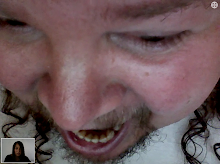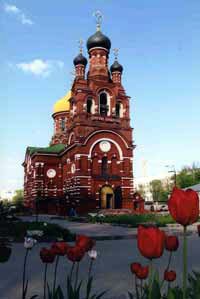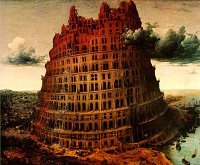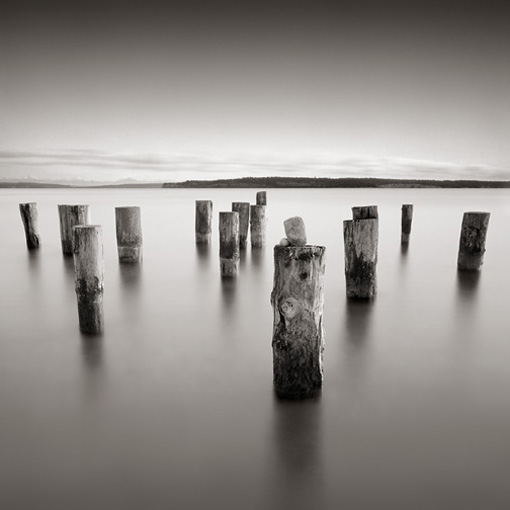I have often been asked the question - "Why would any American choose to live in Russia?"
The answer I usually give is that it is exciting or that I enjoy Russian culture or that I work here and have all my opportunities here or some other plausible half truth that resonates with everyday considerations and satisfies the questioner. I take the curiosity of others about the how's and why's of my life as a sign of respect. Hey, otherwise, they wouldn't ask, right?
We live in a world where most people will give us the benefit of the doubt if we only endeavor to be earnest in our explanations. It is not lying, in my opinion, to tell people what they want to hear or are able to hear if it is true on some level. The heart is a fragile thing containing everything that is precious and, well, one doesn't just go around with the lid open flashing it about like a photo album from your most recent vacation. Guarding one's heart is not some kind of spiritual elitism, but rather protecting a tender shoot from the trampling force of familiar treatment and casual criticism. I have been abroad for almost 14 years now, and I'm just now beginning to be able to speak about this.
The real answer to this question, though much simpler, is difficult to explain to anyone who has never read the spiritual classic Sayings of the Desert Fathers. 'Your cell will teach you everything,' says Abba Moses, one of the most celebrated ascetics of the Nile Valley in the golden era of Egyptian monasticism from the 3rd to the 6th centuries. For a monk the cell is a place of shelter from the elements and the house of God in one, the place where a person works out their salvation. Our cell is that place where we go when no one outside understands us and only God hears. Some say it is your inner self, but for an expansive person like myself, someone dense and deaf, the silence of my cell is my foreignness here in Russia. My cell is the silence in a crowd, all the talking voices that I cannot really hear and the quiet barrier of my inability to interact with my situation according to my natural, spontaneous impulses. It is the fact that I never really fit in and the tremendous effort required to come out of myself, to try to be myself in a world that I can never take for granted because my day to day survival depends on constant awareness of my limitations, my dependence on others, and my skill in accomplishing little things in an environment that just does not come naturally even after 8 years.
The Irish monks who came to the European continent as missionaries in the 4th and 5th centuries called their voluntary exile 'green martyrdom' because they felt it was the greatest sacrifice to be separated from their beloved Erie. The endless wandering for God was a crucifiction of the homebody instinct to get comfortable. I hardly consider myself martyr material and though proud to be an American, my desire to return 'home' is not sufficient to cause any real suffering, green or otherwise. I have found, however, that being a foreigner is a really good way to get to know yourself and your baggage. Living abroad is a massive external device which can help the even the most insensitive person learn to give thanks for the small miracles, to live for those little things that are ultimately the most real and rewarding - self knowledge and a measure of freedom from attachment to material things that do not give any lasting satisfaction.
I am not a 'citizen of the world' or any kind of 'free spirit internationalist' in the modern sense of those whose mobility loosens their sense of nationalism. I am definitely an American and am quite happy to be one and will probably always think of the US as my 'home' and a place I might return one day. This sense of 'otherness' continues to contrast with everyday life in Russia. It is a source of frustration and an introspective lens at the same time. True, being a foreigner is a cheap kind of uniqueness, one that shouldn't be confused with originality or true talent, but 'foreigner' is nevertheless a label that I have come to value because of the protection it offers as well as the privileges it offers a person in a country beset by a dysfunctional national inferiority complex. This heightened sense of isolation and celebrity, of being a beloved guest and noxious intruder offers vistas unimaginable in ones home country. It is a source of introspection, puzzlement and self affirmation that generally fills a lot of the holes for me. It is a role that seems particularly suited to me - one that I enjoy, mostly alone, and that provides inspiration and a feeling of closeness to God.
Some come to Russia for money, some come to leave something behind and others come just because its possible. I suppose any reason is legitimate if it reflects ones real state. I often feel sorry, however, for those who leave never having met the real Russia, which is closer to the uncomfortable place most foreigners hasten to avoid and criticize so easily. The Russians have learned to live in the suspended state between the rock and the hard place and have actually carved out a whole culture from this position, much of it invisible to those trying to see it's beauty on a full stomach from the lobby bar of the local hotel.
It is my hope that I never get too used to Russia to take it for granted. So far, the surprises have kept me on my toes and as the years go by, my vision expands and I begin to finally hear the sweet welcome voices of Russians which seem to say "ах,Фома уже наш!"
Greek Style Black Eyed Peas
1 month ago









No comments:
Post a Comment